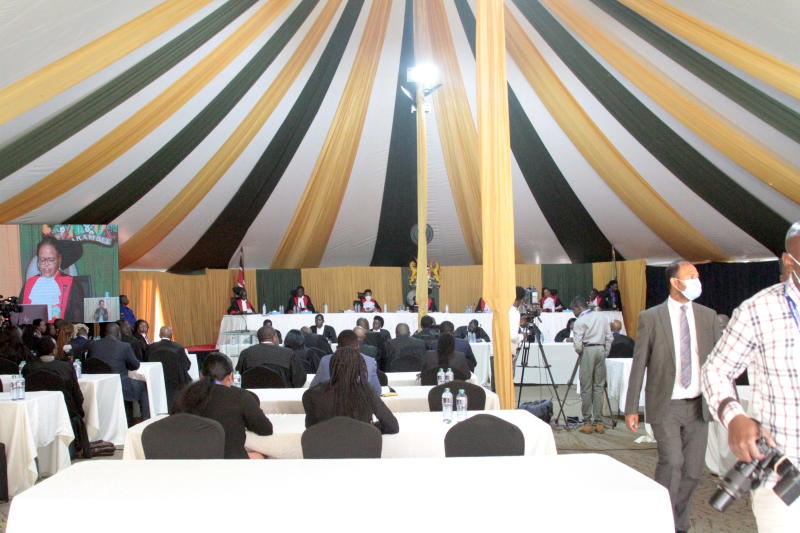×
The Standard e-Paper
Join Thousands Daily

Supreme Court judges during the BBI ruling at Supreme Court in Nairobi on Thursday, March 31, 2022 [David Njaaga, Standard]
Just like all democracies where minority have their say and the majority have their way, the Supreme Court verdict on the Building Bridges Initiative (BBI) had dissenting opinions.